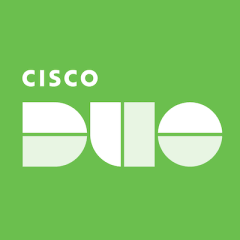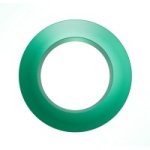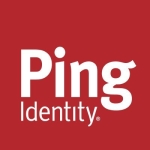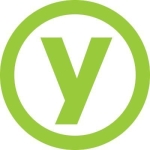What is our primary use case?
We have implemented it in our organization, and we also implement it for our clients. Duo Security is used to push multi-factor authentication while signing onto computers. We have integrated it with on-premises Active Directory, Azure Active Directory, and Office 365. We have also integrated Duo Security with Mimecast and Mac devices. We have a couple of other use cases, but predominantly, it is for multi-factor authentication. It verifies the identity of a user through a token or a mobile phone app.
How has it helped my organization?
It is pretty seamless for establishing trust for every access request, no matter where it comes from. There is logging everywhere. So, if something did happen, you can see everything. In terms of getting conditional access in Azure AD, once you have it set up properly, it just works as expected. They have a huge application inventory that you can integrate with to get that established. They're one of the top vendors.
It is seamless with an easy-to-use portal. It has a lot of automation in there to onboard users and get them to talk with the Duo system. Once they're in the Duo system, it really comes down to what applications they need to get access to, and they're off to the races. They do a great job on that.
It helps support hybrid work. It is very important to have something like that in place because when you are in a hybrid environment, you lose some visibility and control. Having Duo Security in place, you can analyze all different authentication logs and anything else that applications might be interacting with. You can quickly pinpoint and troubleshoot something if an issue comes up.
It is seamless in maintaining network connectivity. In terms of its uptime, in the last couple of years, I can't think of how many times it ever went down. It has to be a very high SLA. It is consistent in maintaining network connectivity across all workplaces, such as campus, branch, home, and micro-office environments.
It helps to remediate threats more quickly. With application logs, it definitely starts to point you in the right direction to figure things out instead of hunting in a bunch of different directions. In a single pane of glass, you can very quickly see which IP address it was coming from and who was trying to initiate that and on which device. It definitely speeds up the process.
What is most valuable?
Documentation is the most valuable feature, and if you ever have to reach out to them with a question, their support is also fantastic.
Its ease of use is also valuable. From start to finish, you can get the whole environment set up within a couple of hours. Everything is easy to follow. The UI is good, and the process is very straightforward.
What needs improvement?
More automation and device insights would be helpful in achieving a seamless single pane of glass. Having the additional capability to streamline processes would also make things better.
For how long have I used the solution?
We have been implementing Duo Security for about four years.
What do I think about the stability of the solution?
It is very stable, and they constantly update the documentation to make it easy to integrate with. The SLAs have been very good when working with them where it is not going down or there are constant problems or anything like that. Overall, it is a very good experience for anybody who is using it.
What do I think about the scalability of the solution?
Its scalability is great. There are tons and tons of applications that you can integrate it with. It could become a key piece for the organization for authentication.
There are probably more than 20 customers who are using this solution.
How are customer service and support?
We seldom had to use their support. Most of the time, we go to their FAQs or review their documentation, and we are able to find the answers that we are looking for.
We had an agent that wasn't installed properly on a Mac device, and they could quickly identify the issue and give us recommendations about what we needed to do to fix it. Once or twice, they've taken a little bit longer to get back to me. They've helped me in solving the issue, but it wasn't a seamless experience. I would rate them an eight out of ten.
How would you rate customer service and support?
Which solution did I use previously and why did I switch?
I haven't yet used another solution, but that doesn't mean that I won't. Microsoft is another multi-factor authentication provider. Duo Security is a much more streamlined implementation. If you want easier management, Duo wouldn't meet that need. It is an additional layer of cost that has to get factored in versus a Microsoft solution that may already come included with your license.
How was the initial setup?
It is very simple to integrate. You do need to have an understanding of how it integrates with all potential applications, and Duo documentation is fantastic and helpful in getting it implemented.
Its implementation takes as little as a few hours. Your bigger challenge usually is onboarding end-users into the Duo environment, which comes down to:
- How many users are part of the project?
- How easy is it to get in touch with them?
- How well can they follow the directions to get it fully set up?
What about the implementation team?
We implement it for our clients. We are like an integrator. Our clients may purchase the licensing through Duo, and then they sign a statement of work with us to install and get it provisioned for them. Inexperience and not having the time to do it are the two primary reasons why clients ask us to implement it. Sometimes, they can set up the basic pieces of Duo, but they need help with integrating it with Office 365. That's because there are things that need to be set up on that side, and they may not know how to do that.
Most of the integrations are cloud-based. There are a few clients who want to have a user sign on to a remote desktop, which needs integration with on-premises Active Directory, but most integrations are with Mimecast, Office 365, and Azure AD, and all these are cloud-based.
What's my experience with pricing, setup cost, and licensing?
It is affordable for what's coming to the table with it, but in this day and age, the cost is looked at under a microscope, and companies need to very finely define what is needed versus what is critical. In some cases, it might not be cost-effective for a company to have it. In a lot of other cases, it is the cost of doing business.
What other advice do I have?
It is somewhat of an uphill battle to get users to buy into it, but after it gets implemented and they see how easy it is, it is a pretty seamless experience.
A big challenge with end-users is that they see it as another layer that they have to remember and worry about. It is very easy to set up the application to get authenticated. Once you break that curve, it gives end users a sense of security where they know that if they're trying to sign on to Office 365 or some other application, they need to authenticate with Duo to make sure that they have the multi-factor authentication. If they saw a request come in and it wasn't them, they can deny it.
Duo Security has had minimal impact on our organization, but we do have an increased feeling of security. Knowing that you have to have a certain device to authenticate into whatever you need to authenticate into gives peace of mind.
It hasn't eliminated trust from our organization's network architecture, but it has added efficiencies to it. There are other things that we might put in place to make sure that we get towards a zero-trust model, but it obviously aids in achieving that end goal.
It doesn't really provide single-pane-of-glass management. In terms of the security posture of an organization, Duo Security is not a one-stop solution for everything. You still need a combination of a lot of different security measures to develop the full posture, but as far as authentication is concerned, in that one layer, you get the authentication logs and easy integration with all different applications, and you also get some device insights and things like that. All of those together definitely give it points towards being a single pane of glass, but you need other security applications to make that holistic environment very security agnostic.
It is one of the many key pieces that all organizations need, especially if they want to integrate with many applications. There are other solutions out there, such as from Microsoft, for multi-factor authentication.
I would rate it a nine out of ten. There is always room for improvement, but for end-to-end authentication, it definitely provides a great mechanism for organizations in getting that single pane of glass.
Disclosure: My company has a business relationship with this vendor other than being a customer.


















